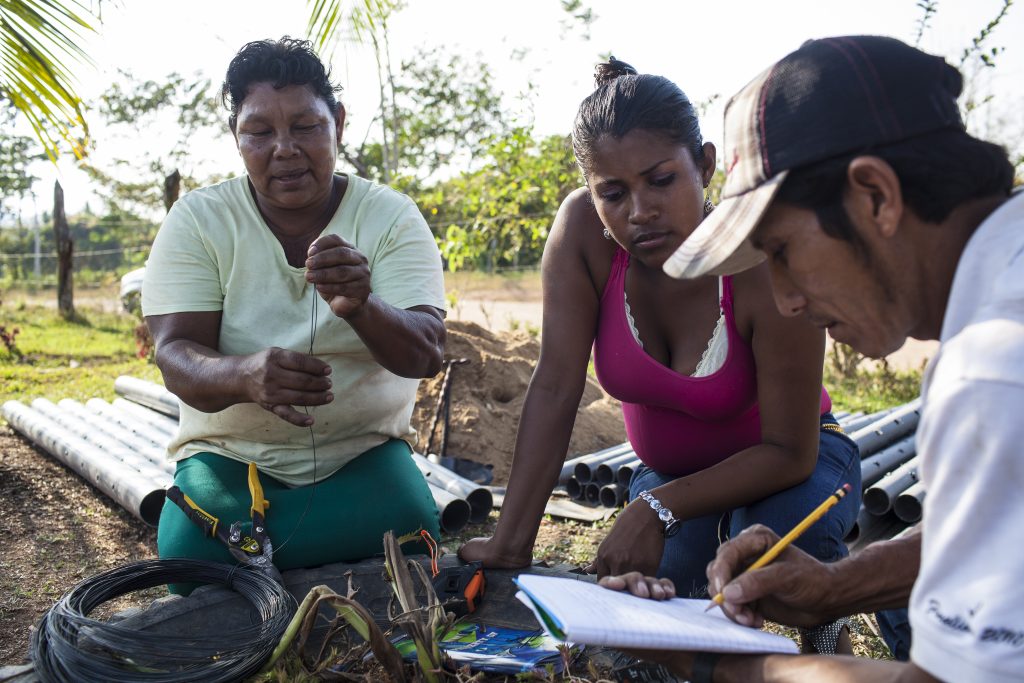Writer / Christy Heitger-Ewing
Photo Credit / WaterAid & Rodrigo Cruz
 Most people spend their first dates swapping favorite movie titles and discussing the silly, superficial things in life. Not so for Dawn Sandoe-Henshaw and her husband, Steve. On their first date, they discovered a shared passion for charity work and saving lives.
Most people spend their first dates swapping favorite movie titles and discussing the silly, superficial things in life. Not so for Dawn Sandoe-Henshaw and her husband, Steve. On their first date, they discovered a shared passion for charity work and saving lives.
Dawn told her date she wanted to prevent child abuse and stop human trafficking. Steve, CEO of EnviroForensics (an environmental consulting firm), confided a desire to help establish clean-water initiatives.
After being involved in multiple charitable organizations through the years, the couple witnessed firsthand how the cycle of poverty begins with a lack of clean water. While visiting Mali, a small village in West Africa, Dawn and Steve learned of the devastating link between water scarcity and human trafficking.
“If you trace the path of the human traffickers, it’s coming out of communities that don’t have water,” Dawn says.
Research backs this finding. The United Nations Inter-Agency Project on Human Trafficking cites undereducated and poor girls and women as those most vulnerable to trafficking. They can’t be in school when they’re walking miles every day to fetch water.
Dawn and Steve saw a clean-water project as a means to both educate and empower women. So in 2013 they co-founded Water for Empowerment, connecting with charities that already have stakeholders, then utilizing their vast expertise to aid fundraising efforts. They formed a board, honed in on their mission and were awarded tax-exempt 501c3 status in 2015.
“We’re behind the scenes, empowering those that have groups already on the ground,” says Dawn, who notes that to create long-term success it’s important to build off of the current infrastructure. “That’s where we’re different than, say, a mission group that goes to a country and does something great, but their help, while well-intentioned, evaporates with time.”
In 2015, Water for Empowerment began a three-year partnership with WaterAid America, an organization that works with communities in 38 countries to help people access clean water and safe toilets.
 Partnering with WaterAid America, Water for Empowerment is supporting a micro-enterprises project in northern Nicaragua that focuses on four key areas for micro-enterprises: improvement of existing wells, promotion of household filters, education and encouragement of hygiene, and the installation of eco-friendly, pour-flush toilets.
Partnering with WaterAid America, Water for Empowerment is supporting a micro-enterprises project in northern Nicaragua that focuses on four key areas for micro-enterprises: improvement of existing wells, promotion of household filters, education and encouragement of hygiene, and the installation of eco-friendly, pour-flush toilets.
The project trains women ages 16 to 30 in these areas. They, in turn, educate students in the schools. The knowledge then trickles down as children go home and share what they’ve learned with their families.
Cora Tucker is one of those adolescents trained by WaterAid staff. She now works as a contractor, managing a team of men.
“I can do all the things that boys and men can do,” Cora says. “They tell me it’s men’s work, but the men respect me because I’m doing the work, too.”
Mava Alex Acuńa has also received training to build water tanks. Though her husband used to be the sole breadwinner, now they are both contributing income. Not only has this change improved the family’s financial situation, but it also has made an impression on her young daughter, who is awestruck with her mother’s abilities.
“She’s proud of her mum,” Mava says. “I’m proud to be a woman with an independent living.”
Dawn, who works tirelessly to fulfill that first-date promise, said she’s thrilled so many people in the Indianapolis area are quick to offer their support.
“The business community has jumped on board, mobilized and motivated to improve the lives of these girls,” Dawn says.
As Ritu Sharma, author of “Teach a Woman to Fish,” states, “Women’s empowerment — economic, social, and political — is a worthy end goal.”
For more information, contact water4empowerment.org.






